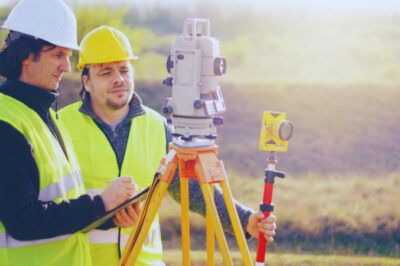Land Surveying: Navigating the Terrain of Precision
Land surveying stands as the bedrock of civilization’s development, often unrecognized yet indispensable in shaping our landscapes. From ancient times to the tech-driven era, the role of land surveyors has been pivotal in delineating boundaries, constructing infrastructure, and fostering the growth of societies.
Introduction to Land Surveying
Land surveying, fundamentally, encompasses the measurement and mapping of land, employing various techniques to ascertain precise boundaries, elevations, and contours. Its historical roots intertwine with humanity’s need to demarcate territories and allocate resources efficiently.
Methods and Techniques in Land Surveying
Traditional methods relied on basic instruments such as theodolites and chains. However, the advent of advanced technologies like GPS, LiDAR, and drones revolutionized the field, enhancing accuracy and expediency.
Role of Land Surveyors
These professionals bear multifaceted responsibilities, from conducting surveys and analyzing data to interpreting legal documents. Technical expertise coupled with an acute understanding of land laws and regulations is indispensable.
Applications of Land Surveying
In today’s world, land surveying is indispensable in various domains. From urban planning and infrastructure development to real estate and environmental management, its applications are diverse and far-reaching.
Challenges in Land Surveying
Despite technological advancements, challenges persist. Environmental factors, obstructions, and adapting to evolving technology pose continuous hurdles for surveyors.
Future Trends in Land Surveying
The future heralds integration with AI, machine learning, and remote sensing technologies, promising higher precision and efficiency in surveying endeavors.
Ethical Considerations in Land Surveying
Ethics play a crucial role, ensuring integrity and fairness in surveying practices. Instances of conflicting interests or property disputes demand ethical decision-making.
Training and Education for Land Surveyors
Becoming a proficient surveyor demands rigorous education, continuous learning, and certifications to stay abreast of technological advancements.
Costs Associated with Land Surveying
Factors like survey scope, terrain complexity, and technological requirements influence costs. Budget allocation for surveys is essential for project planning.
The Evolution of Land Surveying Tools
The shift from rudimentary tools to sophisticated instruments has redefined precision, streamlining survey processes and bolstering accuracy.
Land Surveying and Geographic Information Systems (GIS)
The amalgamation of surveying data with GIS offers a holistic understanding of landscapes, aiding in better decision-making and analysis.
Land Surveying Regulations and Standards
Adherence to legal frameworks and quality standards is imperative for accurate surveying, ensuring credibility and reliability.
Global Perspective on Land Surveying
Practices vary worldwide, but the importance of standardized practices and global collaborations is evident for consistency and accuracy.
Environmental Impact Assessment through Surveying
Surveying techniques aid in identifying ecological impacts, enabling planners to devise strategies for sustainable development.
Conclusion
In conclusion, land surveying remains an invaluable discipline, evolving alongside technology and societal needs. Its significance in shaping our world persists, guiding development while preserving environmental integrity.
